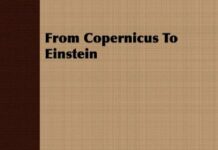
Ebook Info
- Published: 2012
- Number of pages: 322 pages
- Format: PDF
- File Size: 13.21 MB
- Authors: Hans Reichenbach
Description
With unusual depth and clarity, it covers the problem of the foundations of geometry, the theory of time, the theory and consequences of Einstein’s relativity including: relations between theory and observations, coordinate definitions, relations between topological and metrical properties of space, the psychological problem of the possibility of a visual intuition of non-Euclidean structures, and many other important topics in modern science and philosophy.While some of the book utilizes mathematics of a somewhat advanced nature, the exposition is so careful and complete that most people familiar with the philosophy of science or some intermediate mathematics will understand the majority of the ideas and problems discussed.Partial CONTENTS: I. The Problem of Physical Geometry. Universal and Differential Forces. Visualization of Geometries. Spaces with non-Euclidean Topological Properties. Geometry as a Theory of Relations. II. The Difference between Space and Time. Simultaneity. Time Order. Unreal Sequences. Ill. The Problem of a Combined Theory of Space and Time. Construction of the Space-Time Metric. Lorentz and Einstein Contractions. Addition Theorem of Velocities. Principle of Equivalence. Einstein’s Concept of the Problems of Rotation and Gravitation. Gravitation and Geometry. Riemannian Spaces. The Singular Nature of Time. Spatial Dimensions. Reality of Space and Time.
User’s Reviews
Reviews from Amazon users which were colected at the time this book was published on the website:
⭐Reichenbach writes with clarity, reason and passion on a topic that is in much need of this still today. It is accessible to the astute layperson – there is some occasional math, but the text handles most of the important concepts. It is useful for anyone interested in the combined scientific and philosophical perspective of space and time.Reichenbach, in the Introduction, rues the current estrangement of philosophy and science, longing for the “natural philosophy” of the past, where thinkers were well-versed in both areas.So this book takes us through the philosophy of space and time accompanied and supported by empirical and theoretical scientific work. He seems to have little in the way of agenda or “-isms” to tout, nor is he inclined to spend much ink on rehashing historical debates or trivial examples. And although the book winds it way eventually to General Relativity, we are thankfully not dragged through the typical “Aristotlean view -> Galilean view -> Einsteinian view” that is so commonly used.Instead, he begins by discussing Euclidean space, the nature of geometry and so on. Throughout, the notion of topology is a common thread. Time, simultaneity, Lorentz, Principle of Equivalence, and gravitational effects on the topology of spacetime, are some of the steps through the book.In section 39, for example, he guides us on a detour entitled “The Analytic Treatment of Reimannian Spaces”, just to carry “…the treatment of general geometry a little further.” In four short pages and a modicum of equations, the nature of tensors as a natural mathematical consequence appear, effortlessly and painlessly.All along, woven in, are cogent philosophical treatments of the topic currently under discussion. The book is a good example of the author’s desire to see philosophy and science melded again, and good example of his prowess in both areas.
⭐The book is clearly detailed, packed and deep, but as someone that has trouble with explanations that rely on pure geometry, the book slipped by me.
⭐Does a wonderful job at introducing the conceptual framework of space and time and highlighting the philosophical arguments supporting special relativity. Must read for space and time nerds
⭐As a “layman” I have had difficulty understanding the “four-vector” system that Minkowski and Einstein formulated. Time does not seem to be a vector in the same way that space is; time is unidirectional, or perhaps my mind perceives it in this manner. Reichenbach tries to explain this geometry and it’s consequences, and also tries to incorporate philosophy and epistemology in the discussion. He admits that physics uses mathematical abstractions that may or may not represent “reality”.I would recommend this book to those curious about the meaning of “space time” with the slight caveat that Reichenbach was a Positivist, and there are many who disagree with the basic philosophy of Positivism.
⭐I haven’t finished reading it, but I could truly say I LOVE IT!I’m currently a physics undergrad and I’ve always enjoyed the idea of combining philosophy with science.I have been recommending it to some of my teachers and mentors.
⭐A supurb review of relativity and its relation to epistemology. Reichenbach was among those early pioneers who understood relativity and its implications not only for what it says about the physical universe, but also about how it is we come to be able to understand it. This examination cuts through much of the excess added to the subject in recent decades and gets to the basics of dimensional metrics, the nature of duration, simultaneity, the flow of time as driven by causation and the effect of gravity. All of this is investigated from the viewpoint of epistemology in the matrix of physical reality. An excellent look at the intersection between relativistic physics and our capacity to comprehend it. One of his main points is that how we understand what gravity does to space and time depends on our our measuring devices are understood and the relation between them defined.I’m updating this review because I wanted to emphasize that throughout Reichenbach’s analysis of relativity this remains an epistemological investigation. The question is how we come to wrap our experience and knowledge of universe structure around the implications of relativity. In all more contemporary presentations of the “curvature of 3-dimensional space” we are told to “envision a flat rubber sheet stretched tight on which a bowling ball is placed”. The deformation of the sheet represents spatial curvature (though it says nothing about time) and the whole matter is left at that. Reichenbach, by contrast, spends a considerable portion of this book explaining how to actually visualize the deformation in 3 dimensions by applying Euclidean geometry along with the concept of a “ridged rod” of specified length and intervals of time measured by clocks. Reichenbach was a big advocate of “the definition” being the foundation of how what physics reveals is expressed.
⭐Even though I think empiricism itself as a incomplete world view, Reichenbach is a great thinker who has almost completed it. The way he handles the topic of space, and especially geometry attracts your attention from the beginning. Conceptual and historical facts are blended nicely which makes the reading very joyful.
⭐To be honest I’m far removed from Space and Time theory, but I have extracted the fragments of knowledge (that appeal to me) that are well written (and explained) and for a few dollars it’s well worth it.
⭐I first came across this book back in high school, some 25 yeas ago, and it is still my favorite book to this day. It’s not an easy read, and it will require a bit of math, but if you’ve ever studied relativity and thought to yourself “I really wish I could wrap my head around this more easily” then this book might very well be for you. It explains and explores relativity from several angles, and tries to give you the mental tools to visualize and more intuitively understand this complicated topic.I always have several copies of this book at home, as I regularly lend it out to my physicist friends and never get any back.
⭐Nothing!
⭐This is an advanced philosophy of physics book.I like the vintage-style print.
⭐Excellent
⭐What you’ve studied in school is how to do science…this book is about what it is…Buy it, Dont think.
Keywords
Free Download The Philosophy of Space and Time (Dover Books on Physics) in PDF format
The Philosophy of Space and Time (Dover Books on Physics) PDF Free Download
Download The Philosophy of Space and Time (Dover Books on Physics) 2012 PDF Free
The Philosophy of Space and Time (Dover Books on Physics) 2012 PDF Free Download
Download The Philosophy of Space and Time (Dover Books on Physics) PDF
Free Download Ebook The Philosophy of Space and Time (Dover Books on Physics)

